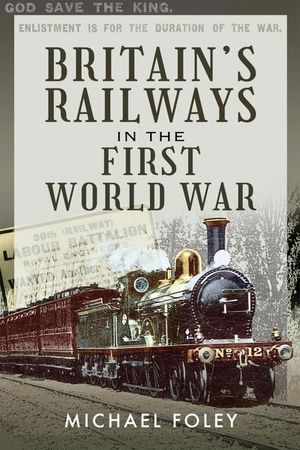Britain's Railways in the First World War
Published by Pen & Sword Books
It is easy to believe that the only part that Britain’s railways played in the First World War was to carry the soldiers to the ships that would take them to France. This couldn’t be further from the truth. Without the help from the railways it is unlikely that the war would have been over as quickly as it was. In Britain’s Railways in the First World War Michael Foley examines how the railway system and its workers proved to be a vital part of the war effort, one contemporary writer even commenting that he thought they were as significant as the navy. The book describes how the enlistment of railway troops for the Royal Engineers to meet the increasing transport demands of the military was to bleed the civilian system dry as skilled railwaymen were sent to work at the front. In addition, the military commandeered thousands of Britain’s railway vehicles, sending them to each of the theatres of war, and turned the already stressed railway workshops away from maintaining what remained of the country’s railways and rolling stock so they could produce armaments for the forces instead. The book also reveals how the British were so far behind their enemies and allies in the use of railway support to the front lines that they had to plead for help from Canada.
BUY NOW FROM
COMMUNITY REVIEWS

